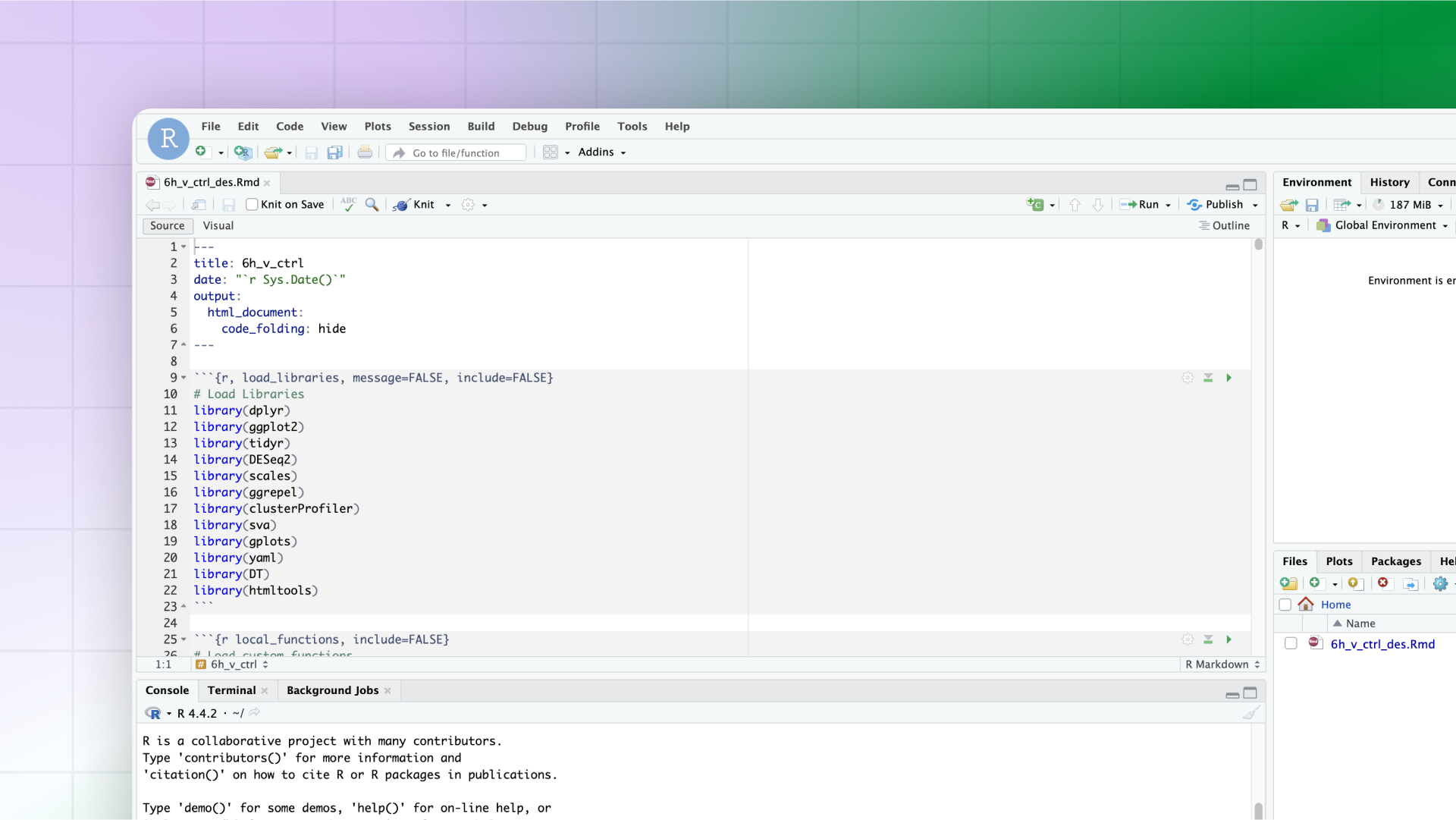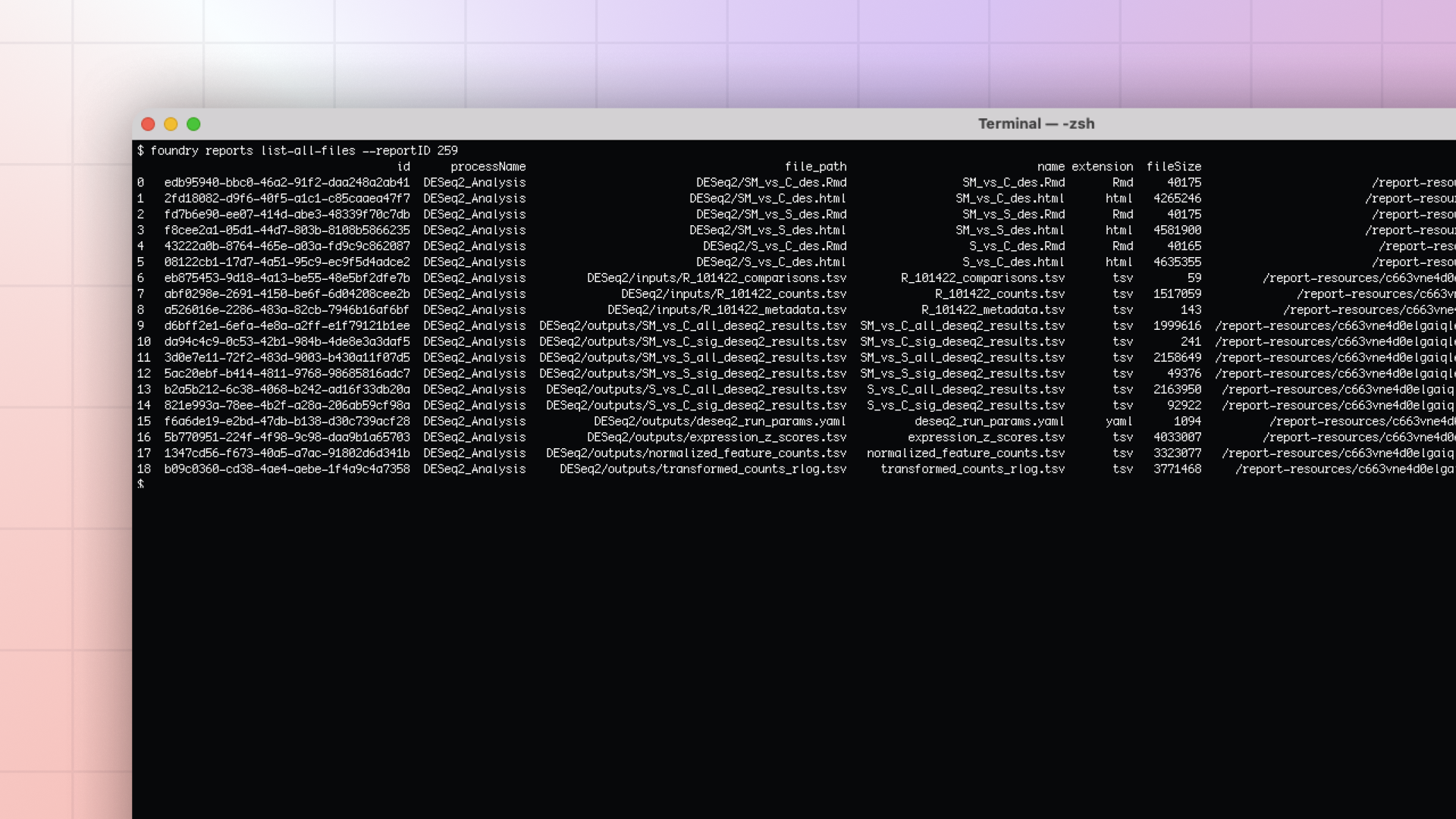Bioinformatics Pipelines
Whether you're running standard analyses or building custom workflows from scratch, Foundry gives you flexible ways to design, run, and manage pipelines.
Choose the approach that fits your expertise and goals:
Run pre-built pipelines for common omics analyses
Use the drag-and-drop builder to create custom pipelines from modular processes
Import Nextflow® pipelines to run and manage them in Foundry
Build with code using the Python/R SDK or Foundry CLI
Every pipeline in Foundry is reproducible by design – with versioning, provenance, and collaboration built in.

Pipeline Creation
Foundry offers a continually growing library of pre-built pipelines and modular pipeline building blocks for analysis.
Launch ready-to-run pipelines for your critical omics workflows with just a few clicks. Or, use Foundry’s drag-and-drop builder to combine pipeline building blocks into any pipeline you need – no coding required.
Whether you want a validated pipeline or to construct a custom one, Foundry gives you a powerful foundation with reproducibility built in from the start.
Hundreds of Ready-Made Options on Foundry
Compatible with Nextflow Elevated by Foundry
Foundry is fully compatible with Nextflow, so you can easily incorporate nf-core pipelines and run them with minimal setup.
It’s the best of both worlds: you lose the complexity of configs, disconnected logging, and pipeline sprawl – and gain the infrastructure, visibility, and collaboration features that make pipelines truly reusable.
Run Nextflow Pipelines Without the Glue Code
Import and execute standard Nextflow pipelines
Adjust parameters, inputs, and containers directly in Foundry
Skip DSL2 config wrangling and homegrown run-tracking systems
Scale Pipelines Across Your Infrastructure
Run jobs seamlessly on AWS, GCP, or HPC
Launch large-scale analyses without provisioning headaches
Monitor runs, inspect logs, and collect outputs in one place
Add Reproducibility and Metadata Context
Version tracking for every pipeline, module, and run
Strict containerization ensures consistent results every time
Monitor runs, inspect logs, and collect outputs in one place

Let's Get Started
Foundry unlocks the power of multi-omics data so you can generate extraordinary scientific insights.





